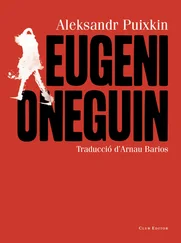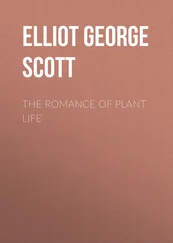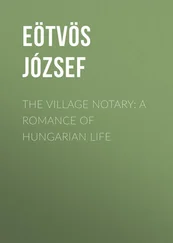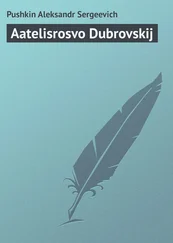Aleksandr Pushkin - Eugene Oneguine [Onegin]. A Romance of Russian Life in Verse
Здесь есть возможность читать онлайн «Aleksandr Pushkin - Eugene Oneguine [Onegin]. A Romance of Russian Life in Verse» весь текст электронной книги совершенно бесплатно (целиком полную версию без сокращений). В некоторых случаях можно слушать аудио, скачать через торрент в формате fb2 и присутствует краткое содержание. Год выпуска: 2007, Жанр: Поэзия, на английском языке. Описание произведения, (предисловие) а так же отзывы посетителей доступны на портале библиотеки ЛибКат.
- Название:Eugene Oneguine [Onegin]. A Romance of Russian Life in Verse
- Автор:
- Жанр:
- Год:2007
- ISBN:нет данных
- Рейтинг книги:4 / 5. Голосов: 1
-
Избранное:Добавить в избранное
- Отзывы:
-
Ваша оценка:
- 80
- 1
- 2
- 3
- 4
- 5
Eugene Oneguine [Onegin]. A Romance of Russian Life in Verse: краткое содержание, описание и аннотация
Предлагаем к чтению аннотацию, описание, краткое содержание или предисловие (зависит от того, что написал сам автор книги «Eugene Oneguine [Onegin]. A Romance of Russian Life in Verse»). Если вы не нашли необходимую информацию о книге — напишите в комментариях, мы постараемся отыскать её.
Eugene Oneguine [Onegin]. A Romance of Russian Life in Verse — читать онлайн бесплатно полную книгу (весь текст) целиком
Ниже представлен текст книги, разбитый по страницам. Система сохранения места последней прочитанной страницы, позволяет с удобством читать онлайн бесплатно книгу «Eugene Oneguine [Onegin]. A Romance of Russian Life in Verse», без необходимости каждый раз заново искать на чём Вы остановились. Поставьте закладку, и сможете в любой момент перейти на страницу, на которой закончили чтение.
Интервал:
Закладка:
Tattiana learns the intelligence—
Of her provincial innocence
The unaffected traits she now
Unto a carping world must show—
Her toilette's antiquated style,
Her antiquated mode of speech,
For Moscow fops and Circes each
To mark with a contemptuous smile.
Horror! had she not better stay
Deep in the greenwood far away?
XXVI
Arising with the morning's light,
Unto the fields she makes her way,
And with emotional delight
Surveying them, she thus doth say:
"Ye peaceful valleys all, good-bye!
Ye well-known mountain summits high,
Ye groves whose depths I know so well,
Thou beauteous sky above, farewell!
Delicious nature, thee I fly,
The calm existence which I prize
I yield for splendid vanities,
Thou too farewell, my liberty!
Whither and wherefore do I speed
And what will Destiny concede?"
XXVII
Farther Tattiana's walks extend—
'Tis now the hillock now the rill
Their natural attractions lend
To stay the maid against her will.
She the acquaintances she loves,
Her spacious fields and shady groves,
Another visit hastes to pay.
But Summer swiftly fades away
And golden Autumn draweth nigh,
And pallid nature trembling grieves,
A victim decked with golden leaves;
Dark clouds before the north wind fly;
It blew: it howled: till winter e'en
Came forth in all her magic sheen.
XXVIII
The snow descends and buries all,
Hangs heavy on the oaken boughs,
A white and undulating pall
O'er hillock and o'er meadow throws.
The channel of the river stilled
As if with eider-down is filled.
The hoar-frost glitters: all rejoice
In mother Winter's strange caprice.
But Tania's heart is not at ease,
Winter's approach she doth not hail
Nor the frost particles inhale
Nor the first snow of winter seize
Her shoulders, breast and face to lave—
Alarm the winter journey gave.
XXIX
The date was fixed though oft postponed,
But ultimately doth approach.
Examined, mended, newly found
Was the old and forgotten coach;
Kibitkas three, the accustomed train, [74] In former times, and to some extent the practice still continues to the present day, Russian families were wont to travel with every necessary of life, and, in the case of the wealthy, all its luxuries following in their train. As the poet complains in a subsequent stanza there were no inns; and if the simple Larinas required such ample store of creature comforts the impediments accompanying a great noble on his journeys may be easily conceived.
The household property contain:
Saucepans and mattresses and chairs,
Portmanteaus and preserves in jars,
Feather-beds, also poultry-coops,
Basins and jugs—well! everything
To happiness contributing.
Behold! beside their dwelling groups
Of serfs the farewell wail have given.
Nags eighteen to the door are driven.
XXX
These to the coach of state are bound,
Breakfast the busy cooks prepare,
Baggage is heaped up in a mound,
Old women at the coachmen swear.
A bearded postillion astride
A lean and shaggy nag doth ride,
Unto the gates the servants fly
To bid the gentlefolk good-bye.
These take their seats; the coach of state
Leisurely through the gateway glides.
"Adieu! thou home where peace abides,
Where turmoil cannot penetrate,
Shall I behold thee once again?"—
Tattiana tears cannot restrain.
XXXI
The limits of enlightenment
When to enlarge we shall succeed,
In course of time (the whole extent
Will not five centuries exceed
By computation) it is like
Our roads transformed the eye will strike;
Highways all Russia will unite
And form a network left and right;
On iron bridges we shall gaze
Which o'er the waters boldly leap,
Mountains we'll level and through deep
Streams excavate subaqueous ways,
And Christian folk will, I expect,
An inn at every stage erect.
XXXII
But now, what wretched roads one sees,
Our bridges long neglected rot,
And at the stages bugs and fleas
One moment's slumber suffer not.
Inns there are none. Pretentious but
Meagre, within a draughty hut,
A bill of fare hangs full in sight
And irritates the appetite.
Meantime a Cyclops of those parts
Before a fire which feebly glows
Mends with the Russian hammer's blows
The flimsy wares of Western marts,
With blessings on the ditches and
The ruts of his own fatherland.
XXXIII
Yet on a frosty winter day
The journey in a sledge doth please,
No senseless fashionable lay
Glides with a more luxurious ease;
For our Automedons are fire
And our swift troikas never tire;
The verst posts catch the vacant eye
And like a palisade flit by. [75] This somewhat musty joke has appeared in more than one national costume. Most Englishmen, if we were to replace verst-posts with milestones and substitute a graveyard for a palisade, would instantly recognize its Yankee extraction. In Russia however its origin is as ancient at least as the reign of Catherine the Second. The witticism ran thus: A courier sent by Prince Potemkin to the Empress drove so fast that his sword, projecting from the vehicle, rattled against the verst-posts as if against a palisade!
The Larinas unwisely went,
From apprehension of the cost,
By their own horses, not the post—
So Tania to her heart's content
Could taste the pleasures of the road.
Seven days and nights the travellers plod.
XXXIV
But they draw near. Before them, lo!
White Moscow raises her old spires,
Whose countless golden crosses glow
As with innumerable fires. [76] The aspect of Moscow, especially as seen from the Sparrow Hills, a low range bordering the river Moskva at a short distance from the city, is unique and splendid. It possesses several domes completely plated with gold and some twelve hundred spires most of which are surmounted by a golden cross. At the time of sunset they seem literally tipped with flame. It was from this memorable spot that Napoleon and the Grand Army first obtained a glimpse at the city of the Tsars. There are three hundred and seventy churches in Moscow. The Kremlin itself is however by far the most interesting object to the stranger.
Ah! brethren, what was my delight
When I yon semicircle bright
Of churches, gardens, belfries high
Descried before me suddenly!
Moscow, how oft in evil days,
Condemned to exile dire by fate,
On thee I used to meditate!
Moscow! How much is in the phrase
For every loyal Russian breast!
How much is in that word expressed!
Интервал:
Закладка:
Похожие книги на «Eugene Oneguine [Onegin]. A Romance of Russian Life in Verse»
Представляем Вашему вниманию похожие книги на «Eugene Oneguine [Onegin]. A Romance of Russian Life in Verse» списком для выбора. Мы отобрали схожую по названию и смыслу литературу в надежде предоставить читателям больше вариантов отыскать новые, интересные, ещё непрочитанные произведения.
Обсуждение, отзывы о книге «Eugene Oneguine [Onegin]. A Romance of Russian Life in Verse» и просто собственные мнения читателей. Оставьте ваши комментарии, напишите, что Вы думаете о произведении, его смысле или главных героях. Укажите что конкретно понравилось, а что нет, и почему Вы так считаете.











